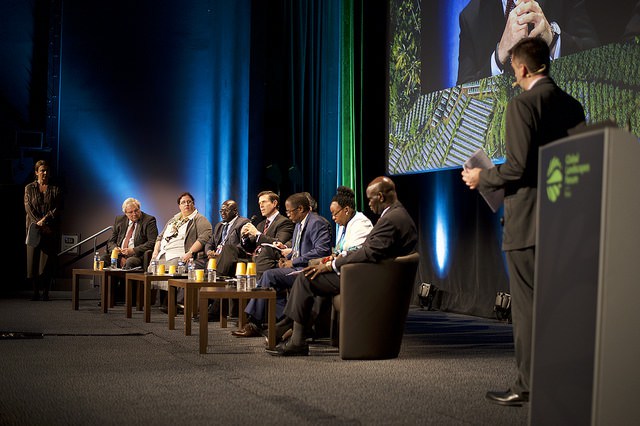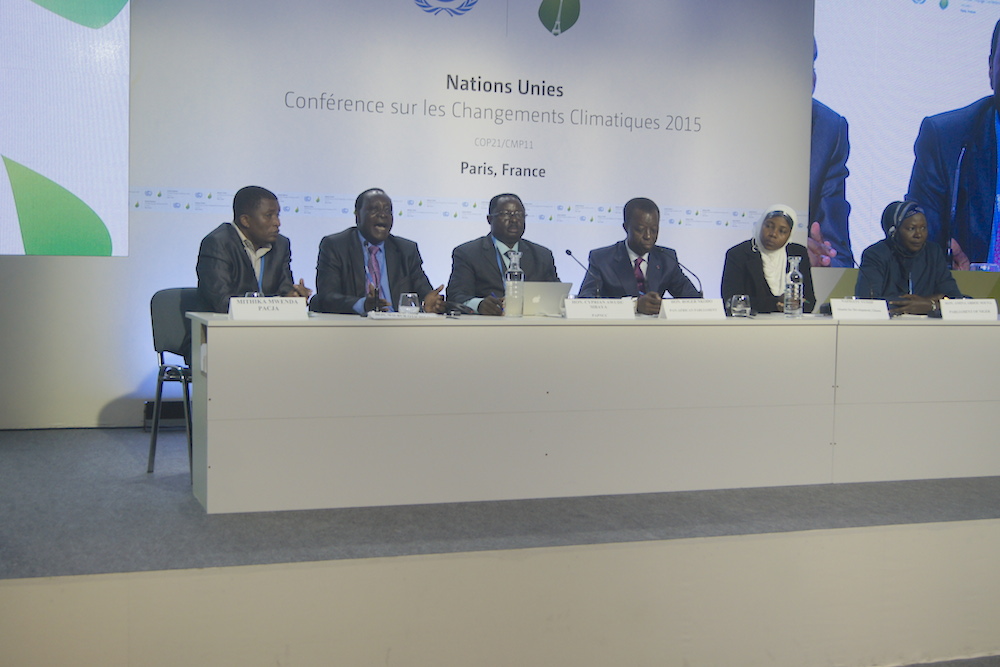
By Atayi Babs
African countries launched AFR100 (African Forest Landscape Restoration Initiative), a pan-African, country-led effort to restore 100 million hectares (386 thousand square miles) of degraded and deforested landscapes by 2030.
The AFR100 target of 100 million hectares has been endorsed by the African Union. So far 10 African countries have agreed to join AFR100 and committed at least 31.7 million hectares of land for forest landscape restoration. AFR100 partners are earmarking more than USD $1 billion in development finance and more than $540 million in private sector impact investment to support restoration activities.
The announcement was made during the Global Landscapes Forum at the Conference of Parties (COP21) in Paris, where forest landscape restoration is a key ingredient of the global movement to adapt to and mitigate climate change. Commitments made through AFR100 build on significant climate pledges made by many African countries to support a binding global climate agreement.
“Restoring our landscapes brings prosperity, security and opportunity,” said Dr. Vincent Biruta, Minister of Natural Resources in Rwanda. “With forest landscape restoration we’ve seen agricultural yields rise and farmers in our rural communities diversify their livelihoods and improve their well-being. Forest landscape restoration is not just an environmental strategy, it is an economic and social development strategy as well.”
For the first time, AFR100 brings together political leadership with an ambitious package of financial and technical resources to support a large-scale forest landscape restoration effort across Africa. Nine financial partners and 10 technical assistance providers have pledged support, led by the New Partnership for Africa’s Development (NEPAD Agency), Germany’s Federal Ministry for Economic Cooperation and Development (BMZ), and World Resources Institute (WRI).
“The scale of these new restoration commitments is unprecedented,” said Wanjira Mathai, Chair of the Green Belt Movement and daughter of Nobel Peace Prize Laureate Wangari Maathai. “I have seen restoration in communities both large and small across Africa, but the promise of a continent-wide movement is truly inspiring. Restoring landscapes will empower and enrich rural communities while providing downstream benefits to those in cities. Everybody wins. ”
Countries that have agreed to join the AFR100 initiative include:
• Democratic Republic of Congo | 8 million hectares
• Ethiopia | 15 million hectares
• Kenya | Committed, but finalizing hectare target
• Liberia | 1 million hectares
• Madagascar | Committed, but finalizing hectare target
• Malawi | Committed, but finalizing hectare target
• Niger | 3.2 million hectares
• Rwanda | 2 million hectares
• Togo | Committed, but finalizing hectare target
• Uganda | 2.5 million hectares
AFR100 builds on the climate commitments made by African countries. So far, 13 of the INDCs (Intended Nationally Determined Contributions) submitted by African countries include restoration, conservation of standing forests, or “climate-smart” agriculture. According to WRI analysis, following through on the commitments would cumulatively reduce emissions by 1.2 Gt CO2eq over the next 10 years, or 36 percent of Africa’s annual emissions and 0.25 percent of global emissions.
“Restoration is really Africa’s gift to the world,” said Dr. Andrew Steer, president and CEO, World Resources Institute. “As the world forges a climate agreement in Paris, African countries— which bear the least historic responsibility for climate change– are showing leadership with ambitious pledges to restore land. These countries are well on their way to meet the goal of restoring 100 million hectares of land, which will help sequester carbon and bring economic benefits to low-income, rural communities. These African leaders are turning their words into action and making a real contribution to respond to the global threat of climate change.”










